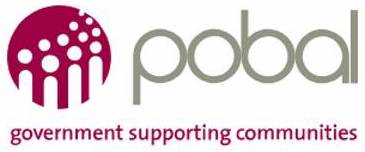76% of respondents report hay fever limits either their own or their child's daily activities.
- One in five people reported that they or their child had missed more than three days of work or education in the past year.
- 42% of those surveyed stated that they or their children had missed at least one day of work or education due to hay fever in the past year.
- 75% of those surveyed don’t believe policymakers and politicians take hay fever seriously.
The Easter weekend ahead promises time outdoors, egg hunts and more than a little chocolate, but this time of year isn’t so pleasant for everyone. As hay fever season began this March, the Asthma Society surveyed 1,274 people in Ireland about their asthma and/or hay fever. Of those surveyed with hay fever (727), 76% said that it limits their or their child's daily activities and has a disruptive effect on their lives. Additionally, 42% of people surveyed reported missing at least one day of work or education due to hay fever in the past year, with one in five missing more than three days.
Almost half (47%) of those surveyed believe hay fever is not taken seriously by their friends or family. Furthermore, 44% of respondents don’t think healthcare providers take hay fever seriously, and 75% feel the same about policy-makers and politicians.
Prof Patrick Mitchell, a respiratory consultant physician at Tallaght University Hospital, and member of the Asthma Society of Ireland’s Medical Advisory Group, commented on the findings, saying, “While most of us are enjoying the first signs of Spring, others are facing into months of the headaches, runny noses and sore throats associated with hay fever season.
The results of our recent survey underscore the disruptive and often unrecognised effects of allergic rhinitis, or hay fever, on people’s quality of life, with three-quarters of the respondents reporting that their daily activities are limited by their symptoms.
Prof Mitchell warned that, allergic rhinitis can pose particularly serious health risks for people with asthma. Over 450,000 people in Ireland have asthma, and allergic rhinitis can trigger asthma symptoms, like coughing and shortness of breath, and even an asthma attack. It can also be a risk factor in developing asthma. Often antihistamines and, if needed, steroidal nasal sprays will relieve symptoms.
Treatment for more persistent allergic rhinitis is also available, with sublingual immunotherapy (SLIT) proving particularly effective. Frustratingly for healthcare professionals and patients, though, Ireland has yet to approve SLIT for reimbursement which presents a cost barrier to effective care. Missing school and work due to allergic rhinitis can reduce people’s immediate and future earning potential. These lost days also have implications for the wider economy. There is an onus on Irish policy-makers to catch up with the rest of Europe and make effective treatment more accessible."
Typical symptoms of seasonal hay fever and perennial allergic rhinitis include but are not limited to:
- Sneezing, as well as an itchy, blocked, or runny nose
- Red, itchy, or watery eyes
- An itchy throat, inner ear, or mouth
- A post-nasal drip
- A diminished sense of taste and smell
- Headaches, reduced concentration and general feeling unwell
A combination of medical and lifestyle advice can help people manage hay fever symptoms. Appropriate medications can be accessed through your pharmacist or GP.
Ruth Morrow, a Respiratory Nurse Specialist at the Asthma Society, said "Typical symptoms of seasonal hay fever and perennial allergic rhinitis include sneezing, itchy or blocked nose, watery or itchy eyes, sore throat, post-nasal drip, and headaches. Pollen and dust levels are rising as the planet warms and hay fever season is getting longer. From the substantial numbers contacting me through our patient services and attending our webinars every year, it is clear that people are struggling with their symptoms."
You can find the Asthma Society of Ireland's top tips for managing your hay fever symptoms here.
Thank you to ALK, a world leader in allergy immunotherapy, for their support of the Asthma Society’s hay fever campaign.


